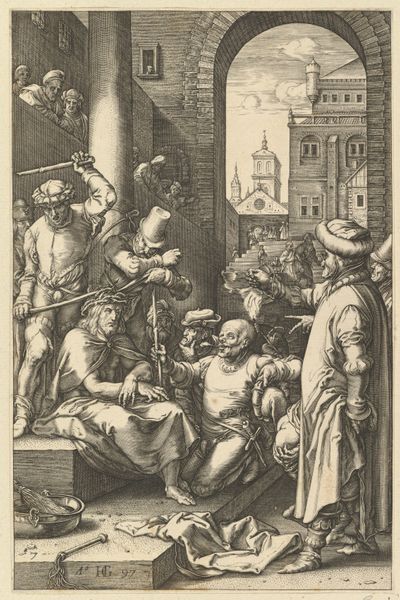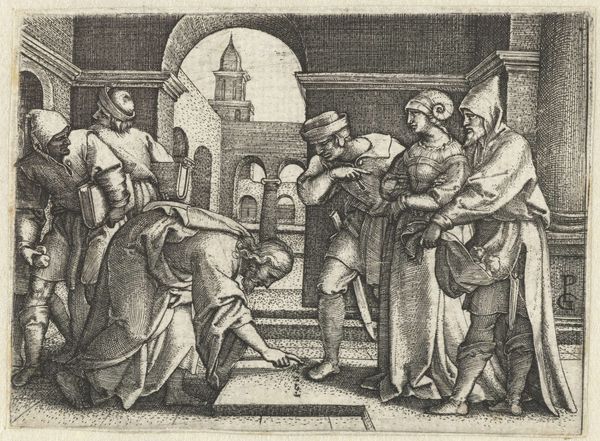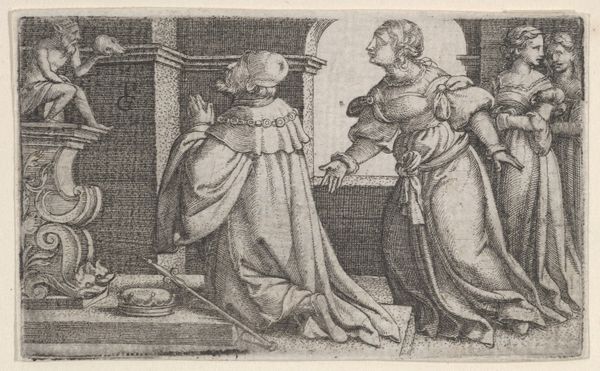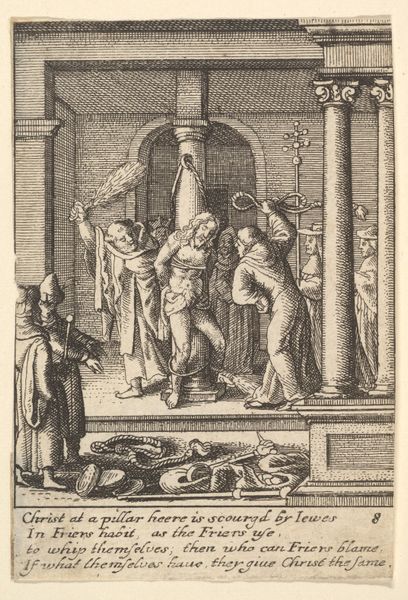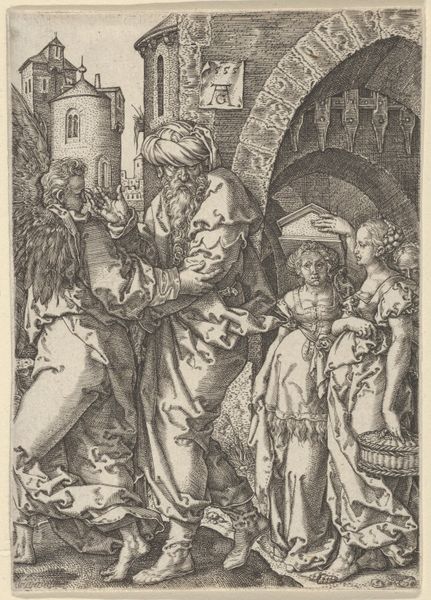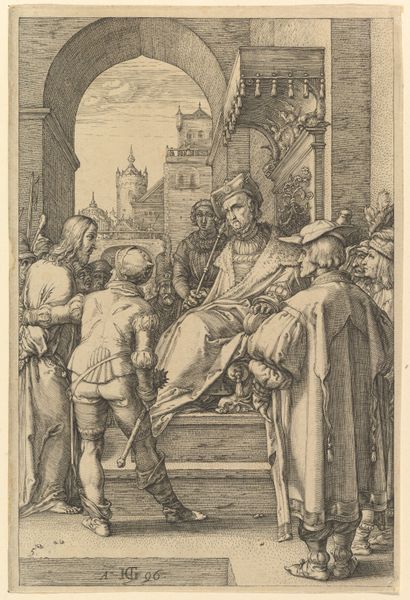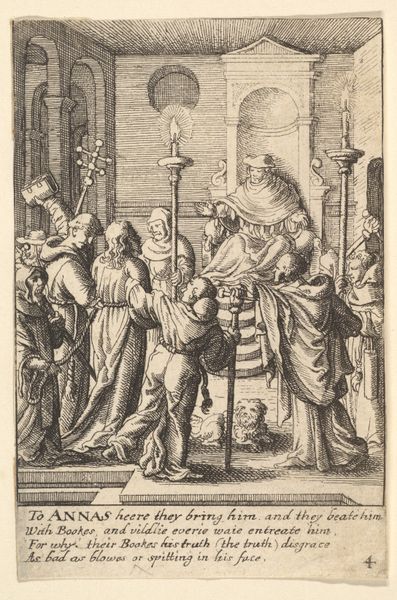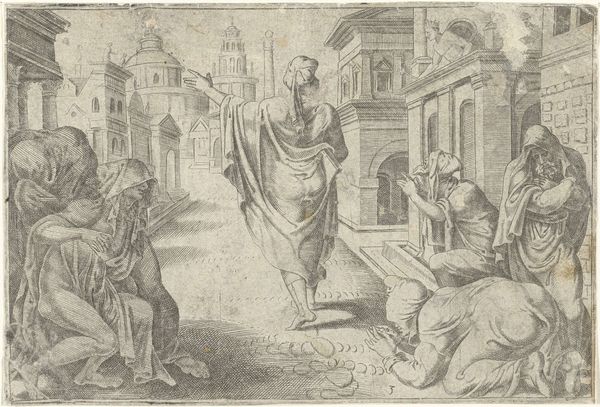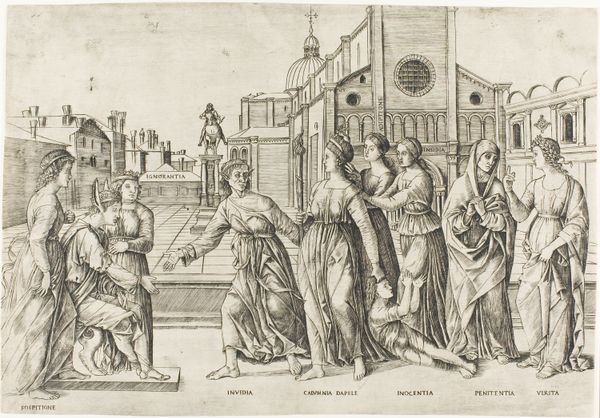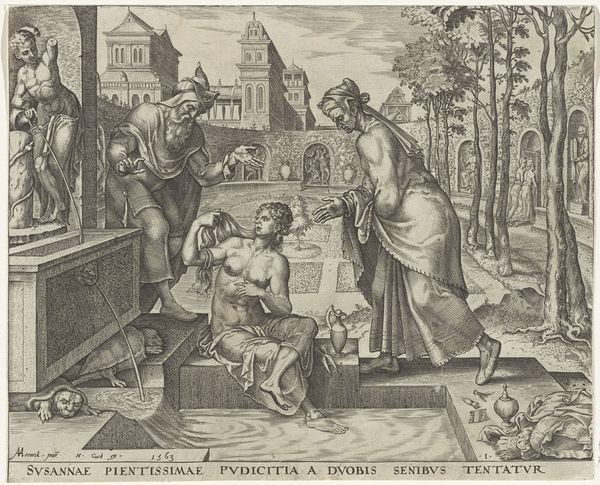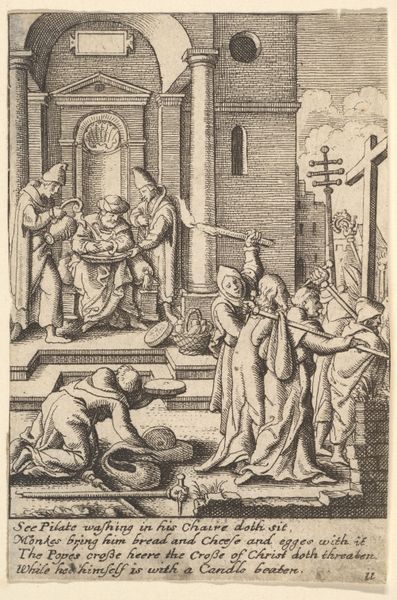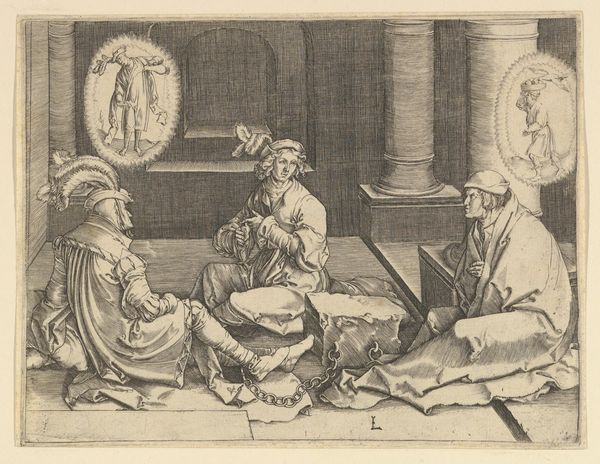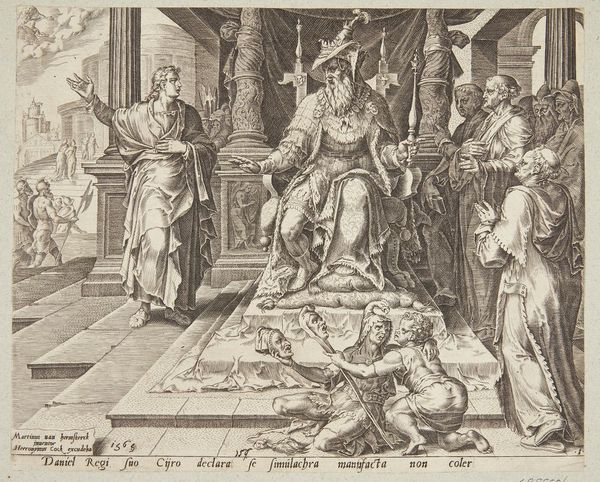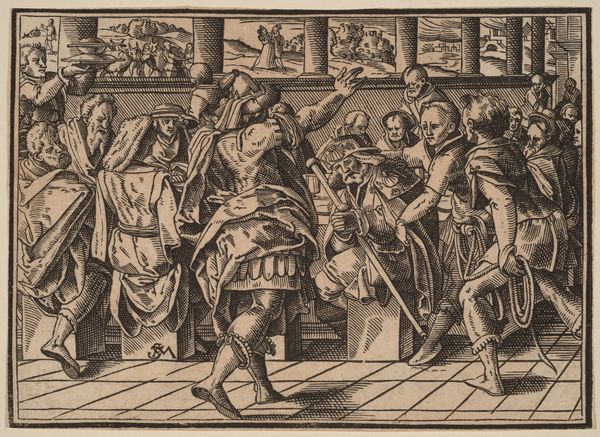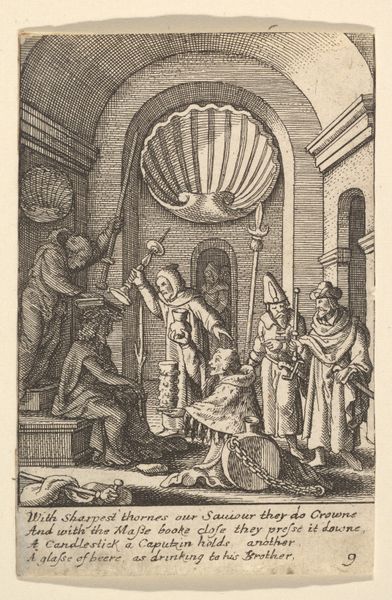
drawing, print, paper, engraving
#
portrait
#
drawing
# print
#
figuration
#
paper
#
history-painting
#
italian-renaissance
#
engraving
Dimensions: 77 × 98 mm (image/plate); 78 × 99 mm (sheet)
Copyright: Public Domain
Hans Brosamer created "Phyllis and Aristotle", an engraving, around the mid-16th century. The composition presents a striking contrast: Phyllis, elevated and wielding a whip, dominates the foreground, while the crawling figure of Aristotle is rendered with intricate detail. The architectural backdrop, meticulously etched, enhances the sense of depth, framing the scene with classical grandeur. The artist uses line and form to destabilize the conventional image of the wise philosopher. The narrative challenges fixed notions of power, wisdom, and gender roles, presenting a world where traditional hierarchies are inverted. The texture of the engraving adds another layer, emphasizing the tension between the smooth skin of Phyllis and the rough garments of Aristotle. The artwork invites a semiotic reading, where the whip becomes a signifier of female dominance, and Aristotle's crawling position symbolizes the subversion of male authority. Brosamer's work reflects and critiques the cultural codes of his time, engaging with new ways of thinking about power and representation.
Comments
No comments
Be the first to comment and join the conversation on the ultimate creative platform.
